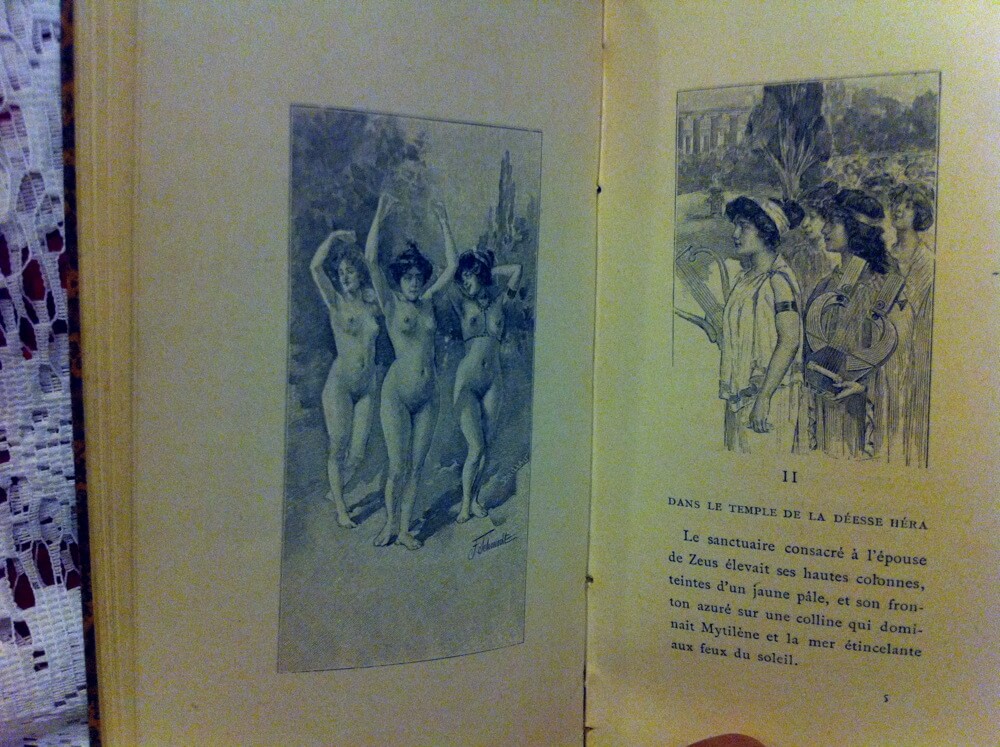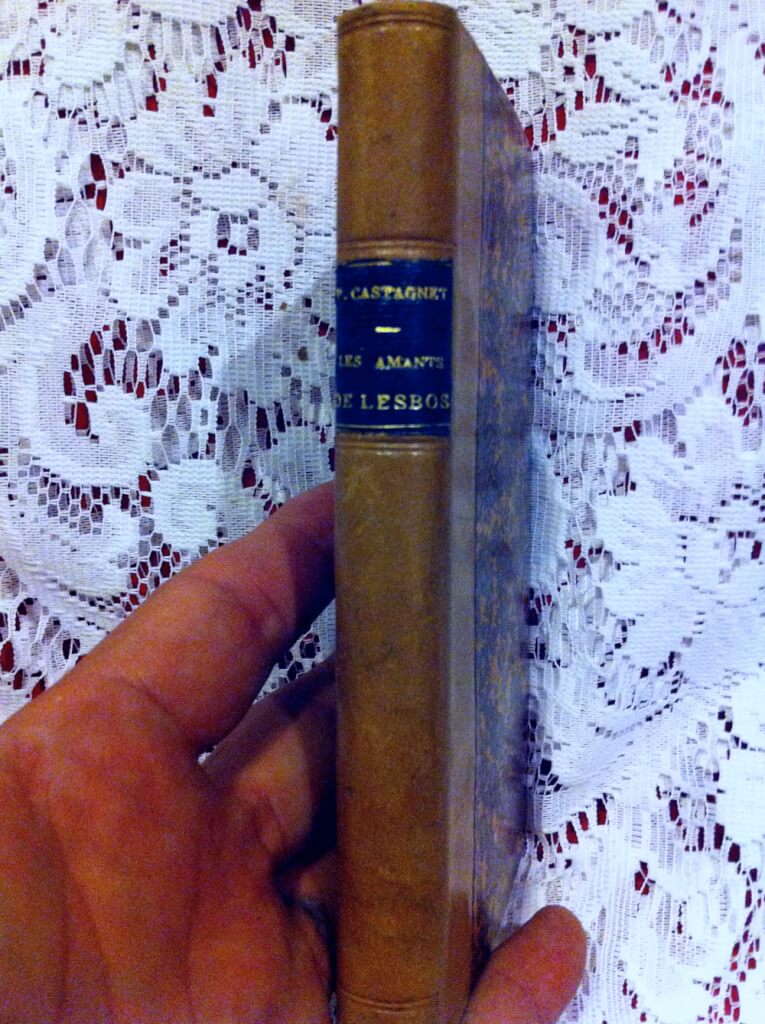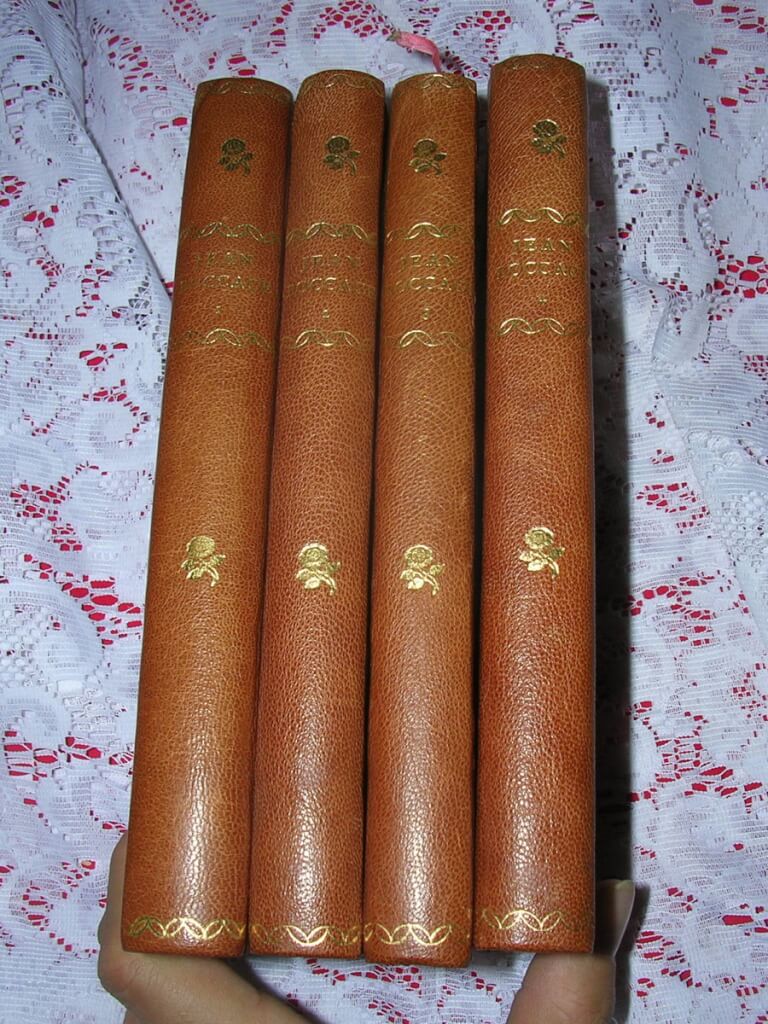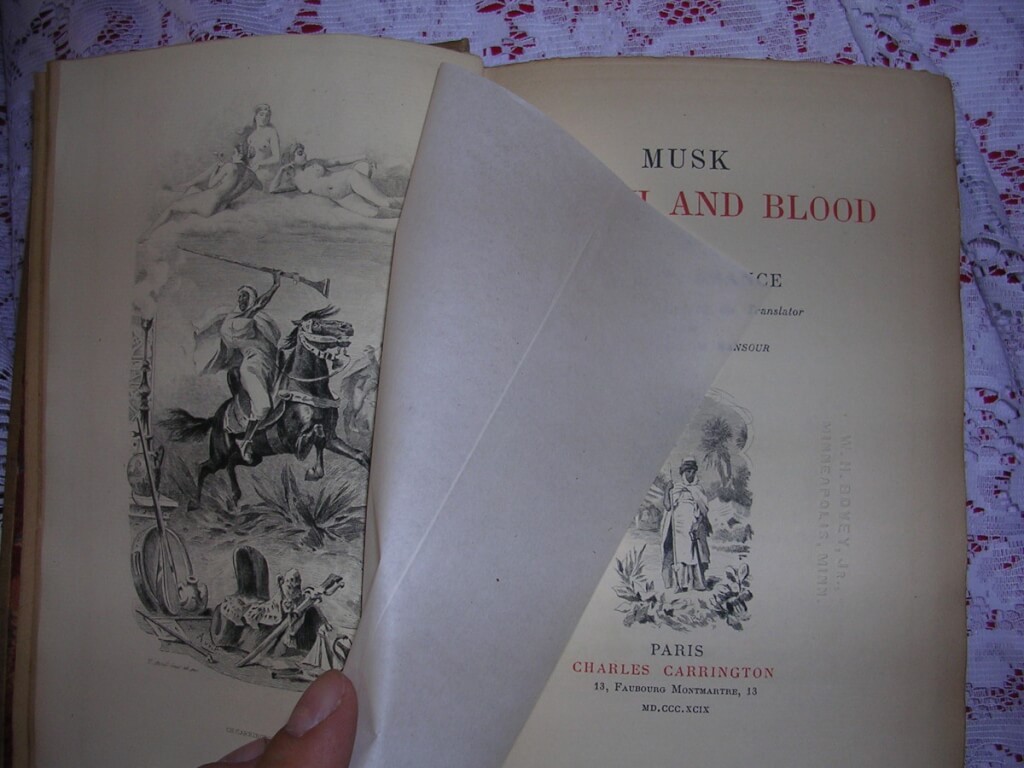The Ragionamenti or dialogues of the devine Pietro Aretino, Pietro Aretino, trans. Isidore Liseux (Isidore Liseux, Paris, 1889)
8″ X 6″, 3 volumes, xxxv+83+89pp, 100+134pp, 129+138pp, half-bound brown morocco over marbled boards, gilt titles on spines, top-edge gilt, other edges deckled, each book has the ex-libris of Boies Penrose II
Pietro Aretino (1492-1556) was one of the most important figures in Italian Renaissance literature, and certainly the most controversial. Condemned by some as a pornographer, his infamy was due largely to his use of explicit sexuality and the vulgar tongue of ordinary speech in much of his work. Dialogues center around a conversation between two rather frank, experienced, and sharp-tongued women on the topic of women’s occupations. We learn that at the time there were only three: wife, whore, or nun. Their discussion is a rollicking account of the advantages, perils, and pleasures each profession offers. Not only was Dialogues the first erotic book in the Christian world to be written in the common vernacular, it was but one of the few to describe the obscenity of commercial love, and is thus a cornerstone of both Italian literature and Counter-Renaissance vigour.
First dialog: The Life of Nuns
Second dialog: The Life of Married Women
Third dialog: The Life of Courtesans
Fourth dialog: The Education of Pippa
Fifth dialog: The Wiles of Men
Sixth dialog: The Bawd’s Trade
Isidore Liseux (1835-1894) was a French bibliophile and publisher of erotica and curiosa. His publications were mostly rare texts of 16th to 18th century authors, hard to find and little known books which were usually translated and annotated by his friend and associate Alcide Bonneau or by Liseux himself. Liseux and Bonneau, both ex-priests, knew each other since seminary. His books were published in small numbers, on high quality paper, and with excellent typography. His usual printers were Claude Motteroz, Antoine Bécus, and later Charles Unsinger. Liseux’s books were published openly as the climate was more permissive in Paris at the time. His books were so well regarded that pirates of his books and even unrelated books bearing his imprint with a false date were published clandestinely into the 20th century. French poet, Guillaume Apollinaire wrote: “The publications of Liseux are more and more sought after because they are correct, beautiful and rare.” (Le flaneur des deux rives, 1918).
Time Magazine, Monday, May 11, 1936
Youngish Pennsylvanians whose Progressive fathers frightened them with the name of BOIES PENROSE a quarter century ago could look forward last week to bemusing their own children with that great name some day. In Philadelphia Boies Penrose II, nephew of Pennsylvania’s longtime (1897-1921) Senator and Republican boss, received a Republican nomination to Congress in last week’s primary.
A rich and cultured Harvard man like his late uncle, 34-year-old Boies II has hitherto devoted himself to scholarship and society, is the owner of a notable collection of etchings, engravings, manuscripts and rare books. When he decided few months ago to make a career for himself in politics, leaders of Philadelphia’s Republican machine warmly welcomed a young man with so potent a name, so fat a pocketbook. Candidate Penrose, who owns a 125-acre estate on the Main Line at swank Devon where he takes his own and neighbors’ small children for rides on his mile-long miniature railroad, promptly established a residence in Philadelphia by renting an apartment, the address of which he is constantly forgetting.— “My platform,” he announced in fastidious Bostonese, “will be the Horse & Buggy, or Save the Constitution.” In the Republican split of 1912 Boies Penrose temporarily lost his State leadership to the Bull Moose faction, which included an ardent Young Roosevelt worshipper named Gifford Pinchot. While one set of Philadelphia voters was lifting the name of Penrose up last week, another group was setting the name of Pinchot down. In a district inhabited largely by factory workers whose cause she has championed many a time on the picket line, red-haired Mrs. Gifford Pinchot made her third race for a Republican nomination to the House, suffered her third defeat.









Reviews
There are no reviews yet.